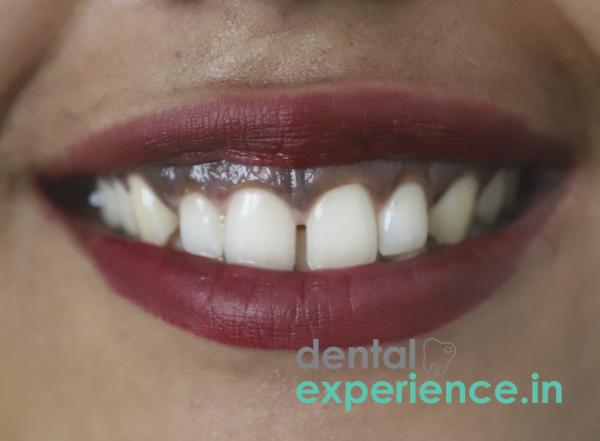High smile line
Overview
Overview
What’s considered a high smile line or a gummy smile?
A gummy smile is one that shows more of your gum line than you’d prefer. It’s also known as excessive gingival display.
No exact definition exists for a gummy smile. In reality, it largely rests in the eye of the beholder.
Your perception of your gumline could be affected by:
- The height and shape of your teeth
- The way your lips move when you smile
- The angle of your jaw compared with the rest of your face
- Generally speaking, 3 to 4 millimeters of exposed gumline is considered to be disproportionate, resulting in a gummy smile.
What causes a gummy smile?
According to research, several factors can contribute to a gummy smile.
1. Differences in the growth of your teeth
Sometimes the way your adult teeth grow in can result in a gummy smile. Though this varies from person to person, a small 2014 study Trusted Source found that it may be a family trait.
If your gums covered more of your teeth’s surface when they came in — a condition called altered passive eruption — it might have led to a gummy smile.
If the teeth in the front of your mouth grew in too far, or over erupted, your gums might have grown too far as well. This condition is known as dentoalveolar extrusion.
A gummy smile can also occur due to a condition called vertical maxillary excess. This is when the bones of your upper jaw grow longer than their typical length.
2. Lip differences
A gummy smile can happen when your upper lip is on the shorter side. And if your lips are hypermobile — which means they move dramatically when you smile — they might expose more of your gum line.
3. Medications
Some medications can cause your gums to grow too much around your teeth. This is known as gingival hyperplasia.
Drugs that prevent seizures, suppress your immune system, or treat high blood pressure could cause the overgrowth of your gums.
In this case, it’s important to treat the condition. If untreated, the clinical overgrowth of gums can lead to periodontal disease.
Some treatment options are more invasive and expensive than others. Talk to your doctor or dentist about which treatments are best for you.
